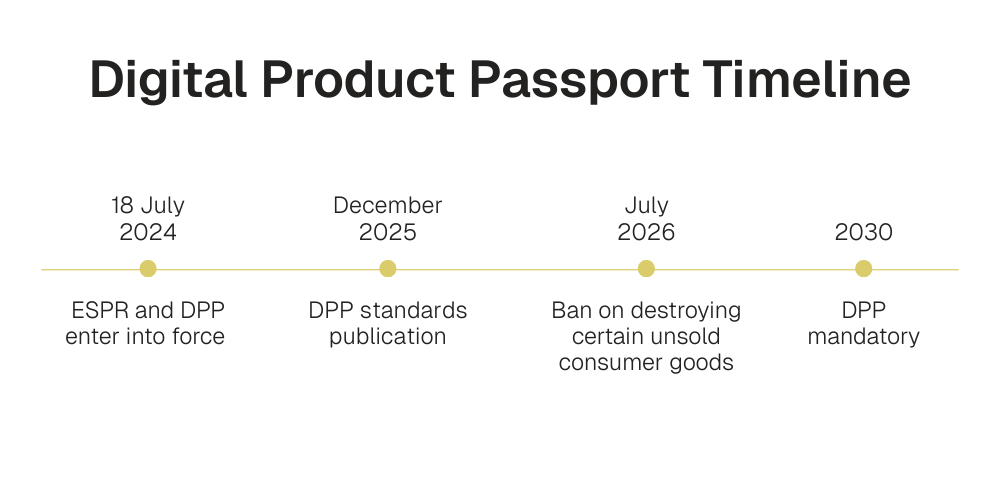What is the EU’s Digital Product Passport (DPP)?
The Digital Product Passport is a central component of the EU’s Ecodesign for Sustainable Products Regulation (ESPR). Its purpose is to provide detailed, product-specific information throughout the entire product, from production and materials to environmental impact and end-of-life disposal.
The DPP promotes transparency across the value chain and supports the EU’s transition to a circular economy.
Each Digital Product Passport includes data on:
- Where and how the product was manufactured
- What materials it contains
- Its environmental footprint
- How it can be recycled or safely disposed of
Who is affected by Digital Product Passport?
The DPP applies to all products placed on the EU market, including those sold by manufacturers, importers, distributors, and retailers. Even if your business is based outside the EU, you will still be required to comply if your products enter the EU market.
For consumers, the DPP means greater access to product information, allowing more informed and sustainable purchasing decisions.
Requirements of the Digital Product Passport
To be compliant, every DPP must:
- Be provided in a digital format
- Be freely accessible, for example via QR code, barcode, NFC, or serial number
- Be unique and product-specific
- Remain available throughout the expected lifetime of the product
- Be interoperable with other DPPs
Environmental information in the DPP
Next to the data required of the product’s environmental footprint, which includes 16 different impact categories, one important piece of this is the Product Carbon Footprint (PCF), a cradle-to-grave calculation of greenhouse gas emissions, covering everything from raw material extraction and manufacturing to transport and disposal.
Digital Product Passport implementation and priority product groups
The DPP will be fully implemented for every product by 2030. In the lead-up, the European Commission has prioritised certain sectors in its 2025-2030 workplan:
- Textiles and apparel
- Furniture
- Tyres and mattresses
- Iron and steel
- Aluminium
- ICT (Information and Communication Technology)

Key Digital Product Passport dates
- 18 July 2024: ESPR and DPP regulations enter into force
- By December 2025: European Commission to publish DPP standards
- 19 July 2026: Ban on destruction of certain unsold consumer goods
- By 2030: DPP becomes mandatory for all product types
Why Product Carbon Footprint calculations matter
Competitive advantage: Earn customer trust by demonstrating accountability and environmental responsibility.
Cost reduction: You can’t optimise what you don’t calculate. PCF analysis can reveal opportunities for efficiency.
Supply chain readiness: Stay ahead of ESG and procurement demands by proactively sharing your product data.
How ClimatePartner supports PCF readiness
The Digital Product Passport will reshape how products are made, marketed, and monitored in the EU, and preparation starts now.
ClimatePartner helps businesses across all industries to:
- Calculate and verify Product Carbon Footprints
- Respond to increasing ESG and supply chain disclosure requirements
Don’t wait for the 2030 deadline, build your product transparency strategy today.